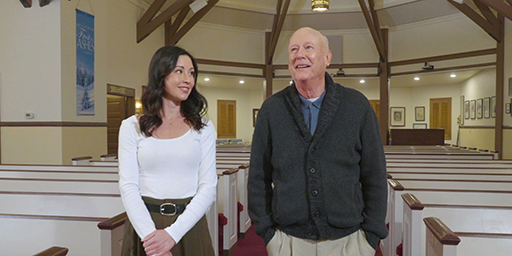Church Growth Things To Know Before You Get This
Church Growth Things To Know Before You Get This
Blog Article
What Does Church Growth Do?
Table of ContentsThe Of Church Growth4 Simple Techniques For Church GrowthSome Known Incorrect Statements About Church Growth Church Growth - The FactsChurch Growth for DummiesThe Single Strategy To Use For Church Growth
One of the most vital thing for any kind of leader is to be familiar with their very own capabilities and constraints, as well as the requirements of those they lead. If you make the effort to create your leadership skills, you will be much better furnished to manage the challenges that come your means.Management is an act of guidance and supplying instructions to others. Church management isn't any type of various; but along with offering support, it likewise encompasses how the leader behaves, connects, and handles the church. When Paul talked to Timothy about his duty as leader of the church, he stated several qualities one would locate in a servant leader.
Defined as leadership that concentrates on others, with the desire to serve being front of mind, servant management is an ideal reflection of the top qualities a church leader need to have. In this short article, we will certainly supply you with an extensive overview on just how church management functions. Church management has to do with offering others adhering to Christ's passions so that they can see and accomplish God's function for them in the globe.
The Of Church Growth
Such qualities include moral trustworthiness, social capacity, compassion, pastoral care, and much more. The Apostle Paul created a number of letters to Timothy specifying his role as the leader of the church.

He should be sober-minded, self-controlled, reputable, friendly, able to teach, not a drunkard, not violent but gentle, not quarrelsome, not a lover of cash. He should manage his family well, with all self-respect maintaining his children submissive. The factor is that if someone does not know exactly how to manage his home, just how will he look after God's church? This description is tough to measure up to, yet it is what many people expect of their church leaders.
This has caused several splits within the church. For churches to offer their members meaningfully, they need to have numerous management roles in place that manage different facets of the church. While specific responsibilities, like tithes, could depend upon the church's denomination, a few usual management roles in every church.
Excitement About Church Growth
And as you can imagine, this function features a varied listing of vital responsibilities, such as: Supplying spiritual management and assistance to the churchgoers. Preaching, leading worship services, and providing rites like baptisms and communion. Providing pastoral care, therapy, and assistance to the congregation. Supervising the church's critical planning and decision-making for the church and guaranteeing that both are straightened with the church's vision and instructions.
They assume numerous obligations and a lot of are in support of the work the pastor or priest carries out, such as: Helping the pastor to offer spiritual assistance and governance within the church. Shares the obligation of shepherding and taking care of the parish. Contributes to the decision-making in the church, specifically concerning policies, finances, and administrative matters.

Separates within the church are not new. The best-known rift is Martin Luther's Improvement and split from the Catholic Church. As a result of these divides, churches have various models that specify their management style and assumptions. Within click here to read each of these models are the expectations and duties of the leaders and their congregation.
The Single Strategy To Use For Church Growth
Each church complying with the principle of Congregationalism is independent of the remainder. The Puritans were the very first Congregationalists and defended their freedom from the Church of England. Today, Quakers, Baptists, and Methodists all follow the design of Congregationalism. The Presbyterian church began with Martin Luther and the Improvement. The word "Presbyterian" means elder, and thus, churches that follow this model have continued to be governed by elders.
In these early churches, the pastors selected the seniors that then selected deacons. Episcopalians continue their link with the Church of England and are more formal with their leadership.
The pecking order of this management design is clearly defined. The finest instance of this approach is the Catholic church. The Roman Catholic Church continues to be the biggest Christian church worldwide. Leaders that concentrate also much on their power and authority will certainly shed hop over to here it and trigger rifts within their church that are challenging to repair.
The Basic Principles Of Church Growth
That may be why servant leaders are frequently the best management style for the clergy. No matter the church's management technique, several church leaders have weblink comparable attributes that make them servants to their members and the Lord. Leaders with these attributes can bring out the very best in their fans and build excellent success for the church overall.
The ideal example of this sort of leader is Jesus Christ, that gave his life for others in the name of the Lord - church growth. This is a severe kind of servant leadership that can not be repeated, yet Jesus's other actions and mentors proceed to demonstrate how servant leaders need to act and treat their fans
His treatment of Lazarus and Mary are only two instances of the means Jesus saw himself as a servant first rather than a leader. One more of the even more specifying minutes of Jesus's servant leadership is when he chose to wash his devotees' feet. This therapy was traditionally performed on the most powerful people.
A true servant leader in the church can do the exact same. This selfless listening makes a church leader stand out among others.
The Ultimate Guide To Church Growth
By doing this, church leaders can be closest to God with their activities. Empathy is not about offering an instant service to your people. It has to do with being at one with their problems and battles. It's just then you garner their trust fund and dependence. It makes individuals rely on you and also the church and its goal all at once.
Report this page